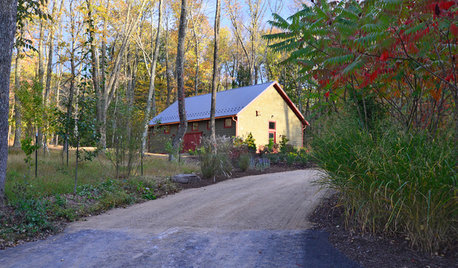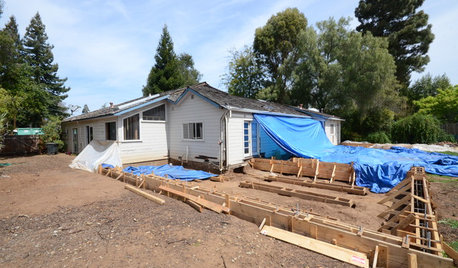Owner Builder Questions
jenlef82
9 years ago
Related Stories

BACKYARD STUDIOSMaster Builder Crafts a Dream Workshop
A design-build firm owner uses an economical building method for his large shed and finishes it off nicely to blend into the scenery
Full Story
REMODELING GUIDESPlanning a Kitchen Remodel? Start With These 5 Questions
Before you consider aesthetics, make sure your new kitchen will work for your cooking and entertaining style
Full Story
WORKING WITH PROS9 Questions to Ask a Home Remodeler Before You Meet
Save time and effort by ruling out deal breakers with your contractor before an in-person session
Full Story
REMODELING GUIDESSurvive Your Home Remodel: 11 Must-Ask Questions
Plan ahead to keep minor hassles from turning into major headaches during an extensive renovation
Full Story
REMODELING GUIDESConsidering a Fixer-Upper? 15 Questions to Ask First
Learn about the hidden costs and treasures of older homes to avoid budget surprises and accidentally tossing valuable features
Full Story
MOVINGHiring a Home Inspector? Ask These 10 Questions
How to make sure the pro who performs your home inspection is properly qualified and insured, so you can protect your big investment
Full Story
WORKING WITH PROS10 Questions to Ask Potential Contractors
Ensure the right fit by interviewing general contractors about topics that go beyond the basics
Full Story
KITCHEN DESIGN9 Questions to Ask When Planning a Kitchen Pantry
Avoid blunders and get the storage space and layout you need by asking these questions before you begin
Full Story
WORKING WITH PROS12 Questions Your Interior Designer Should Ask You
The best decorators aren’t dictators — and they’re not mind readers either. To understand your tastes, they need this essential info
Full Story
GREEN BUILDINGConsidering Concrete Floors? 3 Green-Minded Questions to Ask
Learn what’s in your concrete and about sustainability to make a healthy choice for your home and the earth
Full Story










bdpeck-charlotte
live_wire_oak
Related Professionals
Bull Run Architects & Building Designers · Saint Louis Park Architects & Building Designers · Boise Design-Build Firms · Lincolnia Home Builders · Angleton Home Builders · Superior Home Builders · Cibolo General Contractors · Bell General Contractors · Clarksville General Contractors · Elmont General Contractors · Fargo General Contractors · Norwell General Contractors · Rowland Heights General Contractors · Valle Vista General Contractors · Vincennes General Contractorsjenlef82Original Author
snoonyb
ZGAnderson
pixie_lou
User
jenlef82Original Author
mushcreek
nepool
robin0919
jenlef82Original Author
rqhome
rqhome
dannie_gal
renovator8
jenlef82Original Author